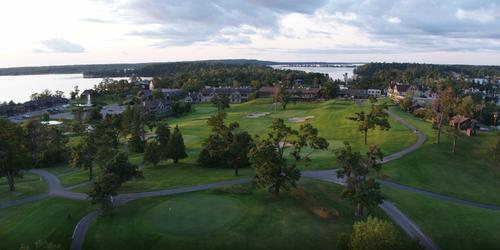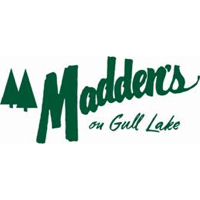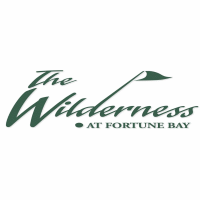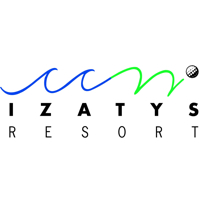
Hazeltine is Ryder Cup-ready already
By Len Ziehm
In just a couple years a golf club that is just 52 years old will become only the second in history to host all of the top six championships played on American soil.
Hazeltine National, which opened in 1962, has already hosted the U.S. Open (1970, 1991), the U.S. Women's Open (1966, 1977), the PGA Championship (2002, 2009), the U.S. Senior Open (1983) and the U.S. Amateur (2006).
All that's missing is the Ryder Cup, and Hazeltine went on the clock to host that epic battle duel between the U.S. and Europe in 2016 after Europe continued its recent domination of the competition at Gleneagles in Scotland earlier this fall. Hazeltine will be the place to be from Oct. 26-Oct. 2, 2016.
The only club to host all those big event is North Carolina's Pinehurst No. 2, which opened in 1907 - 55 years before Hazeltine. Pinehurst, which became the first course to host both the men's and women's U.S. Opens in back-to-back weeks last June, also hosted the U.S. Senior Open (1994), PGA Championship (1936), U.S. Open (1999, 2005) and Ryder Cup (1951).
Medinah hosted the last domestic Ryder Cup in 2012, when the American side suffered a colossal meltdown in the Sunday singles matches to get saddled with a 14 1/2-13 1/2 defeat in the 39th playing of the competition.
Team results aside, the Ryder Cup is the biggest event any club could host in golf. In landing the Ryder Cup a club is assured the global spotlight and an indelible spot in the history of the sport. Medinah was ready when its turn came, and it showed clearly when the world-wide lights were turned on two years ago, but Hazeltine - based on a two-day visit less than a month after the last putt dropped at Gleneagles - may be even better prepared this far in advance.
Medinah endured difficult times getting its No. 3 course ready in 2012. Superintendent Curtis Tyrrell battled major, weather-related conditioning problems right up until the teams arrived. That likely won't be the case at Hazeltine. Tyrrell's counterpart, Chris Tritabaugh, is supervising the most important anticipated potential problem a full two years before the matches begin.
"Our bunkers had been an issue for the course for a long time - long before I got here,'' he said. "They would wash out, and we spent a lot of time fixing them.''
So, Hazeltine's members took on an assessment to cover a nearly $1 million installation of the state-of-the-art Billy Better Bunker system. It was developed by Billy Fuller, a former superintendent at Augusta National, to combat drainage problems. Gleneagles and Valhalla, the Louisville layout that has already hosted a Ryder Cup and two PGA Championships, previously benefitted from the system's installation.
Having top-notch bunkers is especially important at Hazeltine, since the Robert Trent Jones design has an abundance of them. Hazeltine's 108 bunkers have the same square footage as the putting surfaces - about three acres for each. That's an eye-catching statistic, because bunkers typically are about one-third the size of the putting surfaces.
Even before the bunker work started word surfaced of a re-routing of the Hazeltine layout for Ryder Cup purposes. The last four holes of each nine were switched to make for a better spectator experience.
Well before that - immediately after the well-received 2009 PGA Championship - the Hazeltine membership approved the demolition of its old clubhouse and the building of a new one which was opened in the fall of 2010.
And now the controversies surrounding the U.S. team in the aftermath of the latest loss to the Europeans are working towards Hazeltine's benefit.
"For everything that happened at Gleneagles, I never would have written the script that way, but it will turn out very good for us in a lot of ways,'' said Hazeltine tournament chairman Patrick Hunt. "For one, it puts us in the best possible position to win and the attention will be bigger than it was.''
Hazeltine sent member contingents to the last two Ryder Cups, and most who went said they benefitted more from what they saw at Medinah than what transpired at Gleneagles.
"On the big picture side, the best thing (Medinah) did for us was setting a high bar,'' said Hunt. "We're competitive. We always want to beat previous records, and they set all the records.''
Hazeltine is hoping to have 84 corporate chalets, which would be more than Medinah had, and the Minnesota club has plenty of open space to accommodate spectators.
Asked if he anticipated Hazeltine being the best-attended Ryder Cup yet, Hunt responded: "I would.''
"It has to do with the property we have and what we've learned from past events,'' he said. "We're very good at running championships. It's our core mission. Our team has a good blend of experience. We're very professional in our approach.''
Like Medinah, Hazeltine hasn't hosted a PGA Tour event even though it has had opportunities to do so.
"We were offered the BMW Championship,'' said Hunt, "but it didn't fit our brand.''
The bigger annual events, though, do. In addition to its resume of major USGA and PGA championships, Hazeltine also took on the 1994 U.S. Mid-Amateur and 1999 NCAA Championship. The Ryder Cup, though, will be its biggest challenge yet. Part of it will be educating its populace.
"If you've attended a Ryder Cup you know what you're in for,'' said Hunt. "If you're a golf fan you think you know what you're in for - but you don't really know. The general population of the Twin Cities doesn't yet understand the bigness of this.''
Revised: 10/24/2014 - Article Viewed 32,307 Times
- View Course Profile
About: Len Ziehm
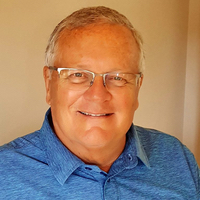 My 41-year career on the Chicago Sun-Times sports staff ended with my retirement on June 30, 2010. During that stint I covered a wide variety of sports, but golf was a constant. I was the paper's golf writer for 40 years, during which time I covered 27 U.S. Opens, 10 Masters, 17 PGA Championships, four U.S. Women's Opens and the last 34 Western Opens in addition to a heavy load of Chicago area events.
My 41-year career on the Chicago Sun-Times sports staff ended with my retirement on June 30, 2010. During that stint I covered a wide variety of sports, but golf was a constant. I was the paper's golf writer for 40 years, during which time I covered 27 U.S. Opens, 10 Masters, 17 PGA Championships, four U.S. Women's Opens and the last 34 Western Opens in addition to a heavy load of Chicago area events.
For 20 years I was a columnist for Chicagoland Golf, a newspaper that suspended publication following the death of founder and good friend Phil Kosin in 2009. (This is not to be confused with the publication of the same name which was introduced in 2013 after being known as Chicago Area Golf for three years). I also contributed a chapter to a history book on the Solheim Cup and have been a member of the selection committee for the Illinois Golf Hall of Fame.
As a player I remain just an avid hacker with a handicap that never has dipped below 16.
Follow Len Ziehm:
Contact Len Ziehm:
Len Ziehm On Golf - Contributor
312-320-3461





